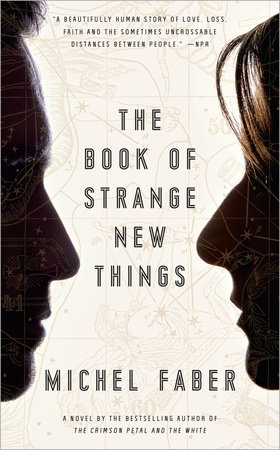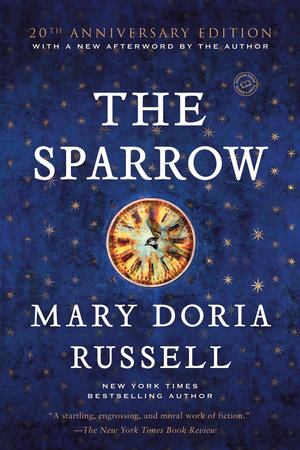Mary Doria Russell’s The Sparrow, which recently celebrated its 20th year anniversary, features a Jesuit expedition to Rakhat, a newly discovered planet around Alpha Centauri, inhabited by the proud Jana’ata and the pacific Runa. The expedition’s driving force, the charismatic Father Emilio Sandoz, embraces the mission as God’s Providence, only to see it fall into disaster and brutal personal degradation when the missionaries fail to understand the shocking relationship between the Jana’ata and Runa. Unbound writers CS Peterson and Theodore McCombs discuss The Sparrow alongside Michel Faber’s space-missionary novel, The Book of Strange New Things (2014) and Walter M. Miller, Jr.’s classic apocalyptic triptych, A Canticle for Liebowitz (1960).
Theodore McCombs: In The Sparrow, The Book of Strange New Things, and even at the end of A Canticle for Liebowitz, we have Christian clergy—Jesuit priests, a Protestant pastor, and Catholic monks—launching into space. It’s a funny image, since we tend to associate space travel stories with scientists, military, and adventurers; and while clergy have also been all these things, these men seem preoccupied with a salvation history that happens on, and is bound to, Earth. What is it that space offers them?
CS Peterson: That history may have begun on Earth, but so many interpretations and practices have turned their eyes to the stars. The Christ claims all authority in heaven and Earth and sends his followers out to make disciples of all nations. Since then, every time the limits of human geography have expanded, so has the definition of “all nations.” Missionaries are among the first ones on the ships into the unknown, emboldened by their sure knowledge that Providence is leading them. It is no wonder that we imagine missionaries going off into the great unknown of interstellar space. All of our sci-fi missionary tales take their cues from history. In The Book of Strange New Things, Peter, the pastor, has been hired by a corporation to evangelize the Oasans, the indigenous inhabitants of the planet Oasis. The motivations of the corporation remain vague and detached from Peter’s missionary work, until it is clear that the Earth is becoming uninhabitable. Those seeking gold and those seeking souls always danced together.
Excerpted from "The Sparrow" at 20 Years: A Space Theodicy" w/co-contributor Theodore McCombs. To read more please visit FictionUnbound.com




